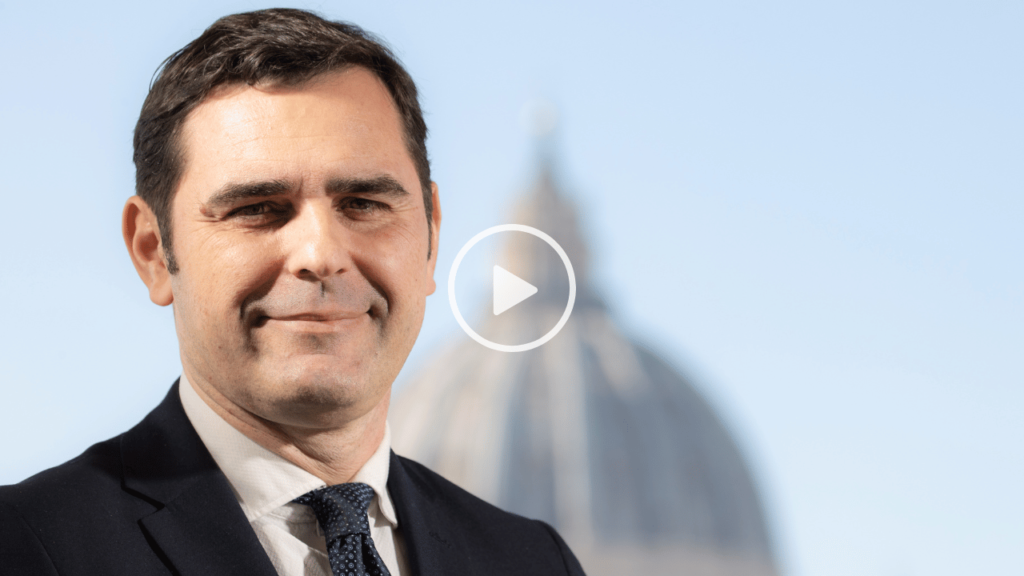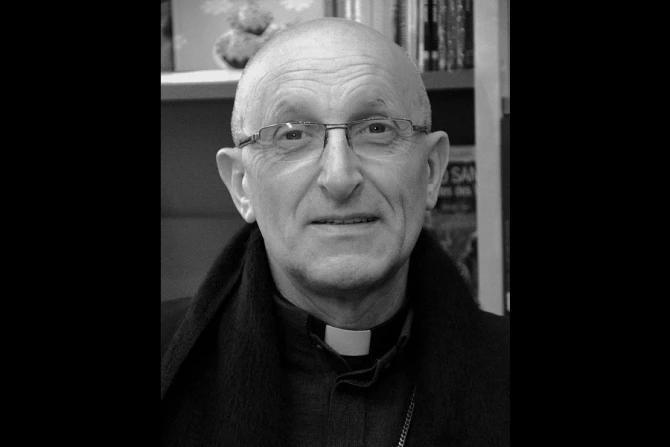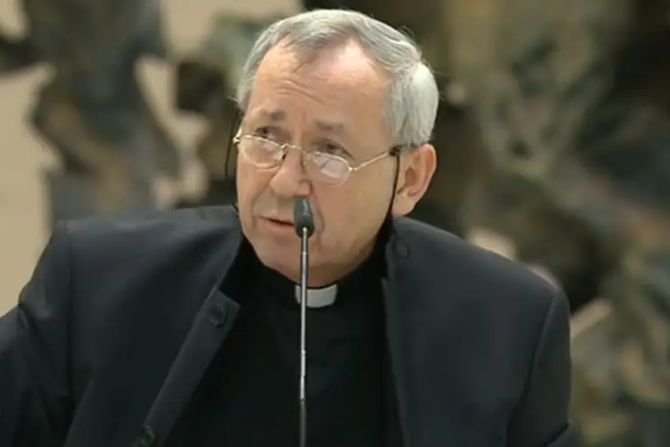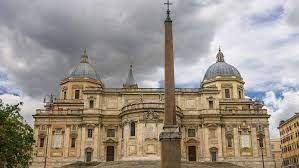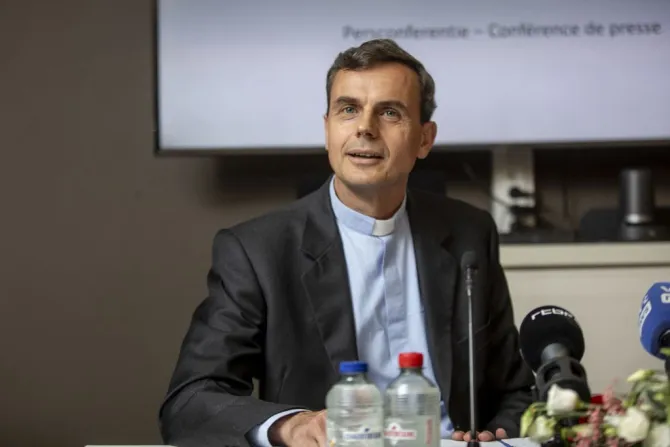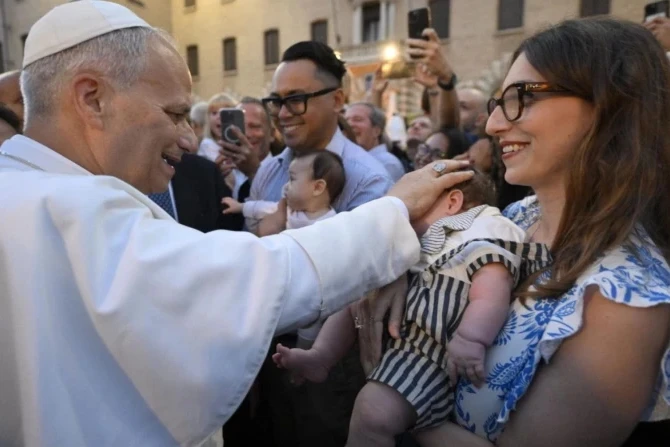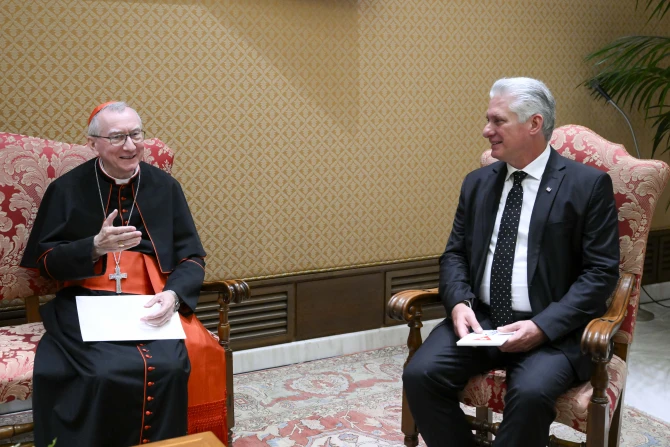Alessandro Gisotti, who has been serving as director ad interim of the Holy See Press Office, shares his insights into Pope Francis’ pontificate and communication style in an interview with Andreas Thonhauser. Gisotti describes Pope Francis as a communicator who focuses on the importance of relationships with people and emphasizes the value of every person. He believes that Pope Francis’ message revolves around the concept of a merciful God who loves everyone and can change our lives forever. Gisotti also sheds light on the perception of Pope Francis in the secular media, where his profound spirituality may not be fully appreciated or understood. Finally, Gisotti discusses how Pope Francis has adapted to the digital age, using social media to reach a wider audience and evangelize in the digital continent.
You have worked with and inside the Vatican communications department for many years. What is your take? What is your impression of Pope Francis as a communicator?
Andreas, I have been working for 23 years, starting in Vatican Radio during the Great Jubilee of 2000. So, I had the privilege to serve the Holy See and the Popes; three great pontiffs: John Paul II, Benedict XVI, and Pope Francis. And each of them gave me something, not only on a professional level but on a personal, spiritual one. And every one of them, yes, of course, has his style of communication, but they are great communicators.
In particular, Pope Francis, in my opinion, is reminding us every day with his words – with his gestures even more than his words – the importance of a relation[ship] with God, a merciful God, and how this relationship, this friendship with Jesus, with a merciful God, can change our lives forever. So, this is the real core, the most important thing he does, even on a communication level.
What have you learned from him in this regard?
The importance of caring for people… that people are really important when you have a meeting, an encounter, with any person…. and it doesn’t matter if it is a head of state or a poor [person] along the way that you meet.
So, the person is the most important value that he is always underlining, every day, through his homilies, speeches, and, as I already said, primarily through his gestures. Because sometimes, we have to admit that he speaks more through gestures. And sometimes, these gestures bring a much more powerful message than words. And even silence: I remember I was with him in Auschwitz. And this was an incredible journey because he decided not to say a comment in the Auschwitz camp, and then the silence spoke powerfully on that occasion.
What would you say were the most important messages so far? You mentioned one, but what will we take from Pope Francis from the last ten years?
God loves every one of us; the importance of the Mercy dimension: we must remember the extraordinary Jubilee that Pope Francis celebrated at the beginning of his pontificate. So, mercy is a keyword of his pontificate. And from this keyword, this principle, we can see all the wonders – also, if I can say, the miracles like the journey in Africa or Iraq – always expressing this mercy through the Gospel’s message. So, I think this is something we have to deepen in our life: this message of a merciful God loving us and changing our life if we accept to be touched by this love of a merciful God. Because this is something important to me: we are free to refuse or accept this love, but God always loves us. And Pope Francis is witnessing, with his person, with his messages, with his words, with his gestures, that God is always there waiting for us, waiting for us.
He’s also a very public figure as a pope. How would you describe his perception, especially in the secular media? And what are they missing there? Is there an aspect of Pope Francis not being reported on so well or so much?
He is a man of prayer. Probably, sometimes what you call the secular media misses this aspect of the profound spirituality of Pope Francis. I think this is something that we must understand and try to understand better because everything that he does, even those gestures that I have already mentioned, always starts from the prayer, from the relation with God. The spiritual dimension is always the beginning of the story for Pope Francis. Just think of Syria. Just think of Iraq. Just think of South Sudan. We see the reason at the beginning of this beautiful story with this pontificate: from prayer, from a moment of a profound relationship with God.
And discernment is one of the critical words of this pontificate because he’s a Jesuit. So, discernment is not only a soundbite, it is very profound in his life before becoming Pope and even more now. I understand that for secular media, it’s not so easy to understand this part of the spirituality of the pontificate. But it’s up to us, the press of the Vatican, the Catholic media, to underline the importance of the spiritual dimension of his life and his pontificate.
Having worked with and observed many popes before, what would you say is the actual or most crucial impact of Pope Francis’ pontificate?
As I already said, all of these great pontiffs I had the honor and the privilege to serve had his communication style. And I’m convinced that the Holy Spirit helps the pontiffs to be up to the task. And we understand how – now I speak for the communication side – social media is so important, especially for the young generation. So, with his capacity to generate images, Pope Francis is really up to the task of being a communicator for the social media age. And that is why the Twitter account, Pontifex, is followed by more than 50 million people, and the Instagram account, Franciscus, by more or less 10 million people. This is huge.
And so this is something new concerning his predecessor, even though we must remember that Pope Benedict XVI opened the account on Twitter Pontifex. So even at his age, when the Pontifex account started, in his experience, he really understood the importance of evangelizing in the digital continent, as Benedict XVI underlined in his message for the World Day of Communication. We have to be there. We don’t have to be fearful to stay there and evangelize, even in this new continent, because it’s a continent. So, if we believe that new evangelization is fundamental for the third millennium and our century, we must stay there. And there is a beautiful continuity between Benedict XVI and Francis in this particular aspect of communication.
Digital communication is also not a one-way street. You can communicate but receive comments and questions if you observe or watch those social media channels. Is there something that sticks out, a question people have for the Pope that comes often?
What impressed me during the pandemic – the difficulties of the lockdown and people isolated, especially the elderly – we received many comments and emails thanking and being grateful to Pope Francis for his morning homilies in Casa Santa Marta. And this is quite impressive because we always say – and maybe this is true – that we live in a situation of secularization and desertification on a spiritual field. At the same time, many people, not only the Catholic faithful but many people, understood how important it was to have the Pope every morning during the lockdown, during that ugly situation for so many millions of people around the world, to have a word of hope through the Gospel. And so, I think that this is something that impressed us a lot and that convinced us, for example, to start a service in the Dicastery for Communication for sign language because we understood that many people needed this translation of the homilies of the Pope and then the speeches, the catecheses, in sign language. And this is something fundamental because it shows us how Pope Francis generates good experiences. And for example, with this sign language, we understood that no one has to be left out. If you want the Gospel, the message of the Gospel through the words of the Pope, to arrive to all, we have to develop all the tools possible, the technology that God today gives us.
At the Dicastery of Communication here at the Vatican – you told me also this morning – [there are] 40 languages and sign language that you’re communicating in. What is the greatest challenge there?
Coordination, coordination, because, as I was saying, Andreas, I started working in Vatican Radio 23 years ago, in the year 2000. And I can assure you that even at that time, there was talk of reforming the Vatican media. Why? Because even at the time, we understood the need for better coordination, the better synergy between the different Vatican media outlets: the Vatican Radio, Salvatore Romano, the publishing house, the Holy See Press Office, and then now Vatican News – because we have now this new brand-new information website, Vatican News. So, every day’s challenge is coordination and having a more consistent message. And yes, we have to make some corrections along the way. That’s normal with a very young story, the one of the Dicastery for Communication. But the principle is valid and valuable: to have better coordination, and better synergy within the different media, with the various stories, other formats, foreign languages, as you said, and diverse cultural approaches, to give more strength to the message. And the message is that of the Gospel, through, in particular, the words of the Holy Father, Pope Francis.
I have a more personal question. You have been working, and you said also serving the Holy Father, really collaborating with him, for ten years now. What will you take with you? What have you learned on a personal level?
I was the director and interim director of the Holy See Press Office in 2019. So that year, I had many occasions to meet with Pope Francis. And I have good memories of these meetings. And even now – I have fewer occasions and opportunities to meet him, but it happens – every time is a moment of joy and consolation for me. So, what impressed me is that when you are with him, it’s just you. You feel that he is listening to you. He cares about you. And even if you know how many things he has to do and how many meetings he has to attend, you have the feeling that it’s you [that he cares about/is thinking about]. And I remember that – as you can understand, as you can imagine – when I was the Vatican spokesman and met with him, we mainly talked about work, but the Holy Father always asked me about my family – How are you doing? Is everything okay? – always caring for me. And so, I’m very grateful for this paternal way. And that is the most important experience I will bring with me forever, particularly from that challenging and fascinating period when I was the Vatican spokesman.
Thank you so much for your time. Thank you for being with us.
Thank you, Andreas.

